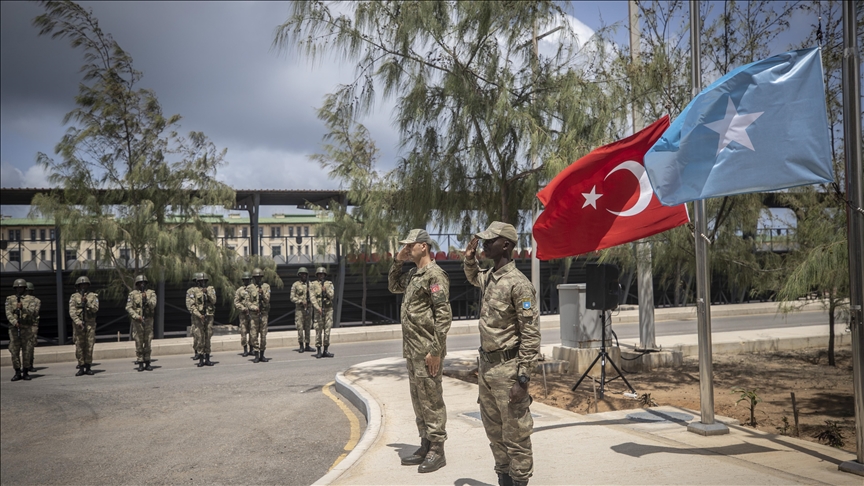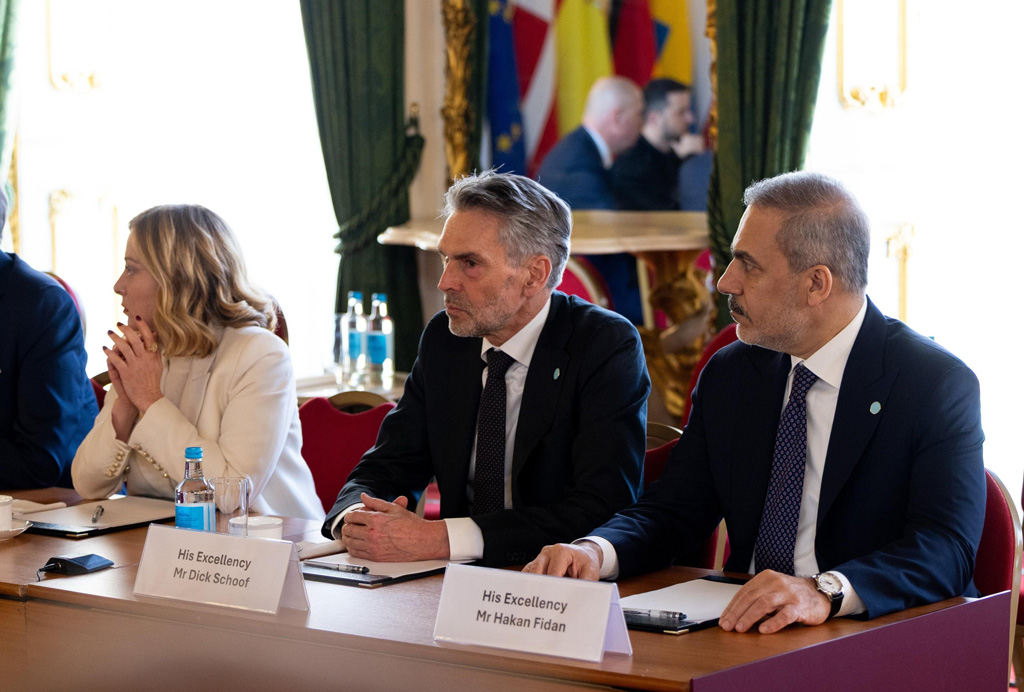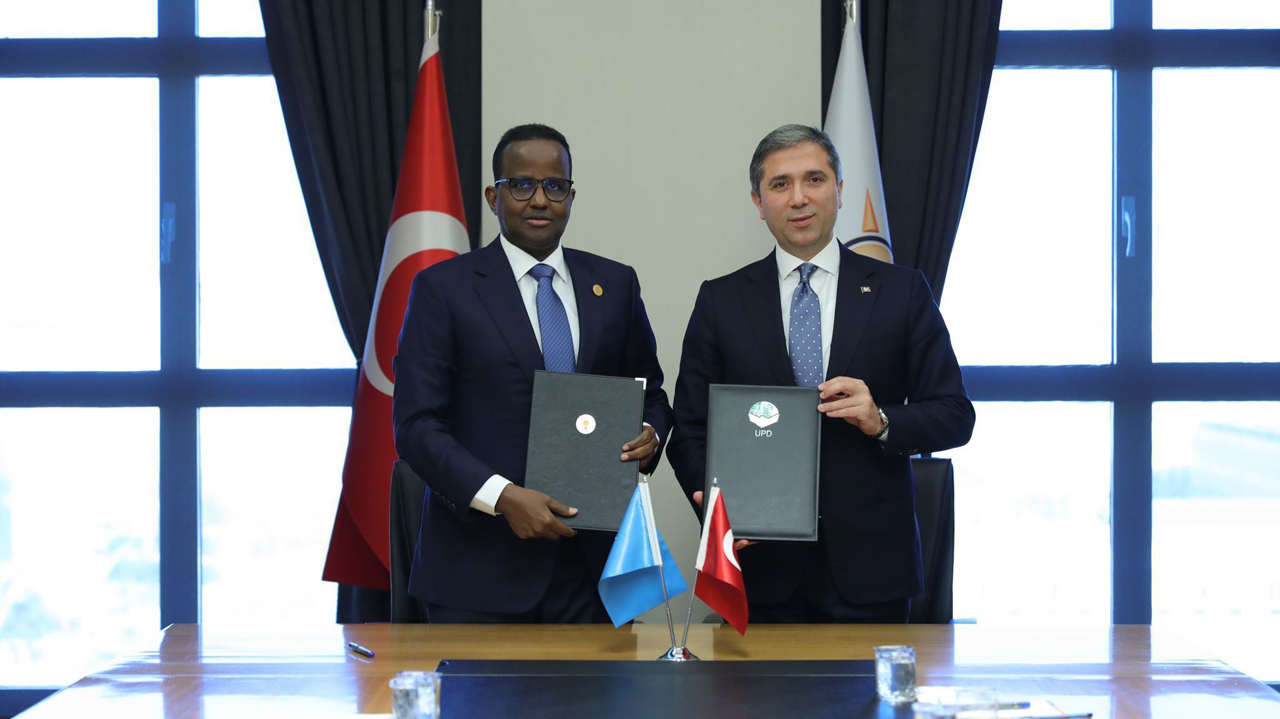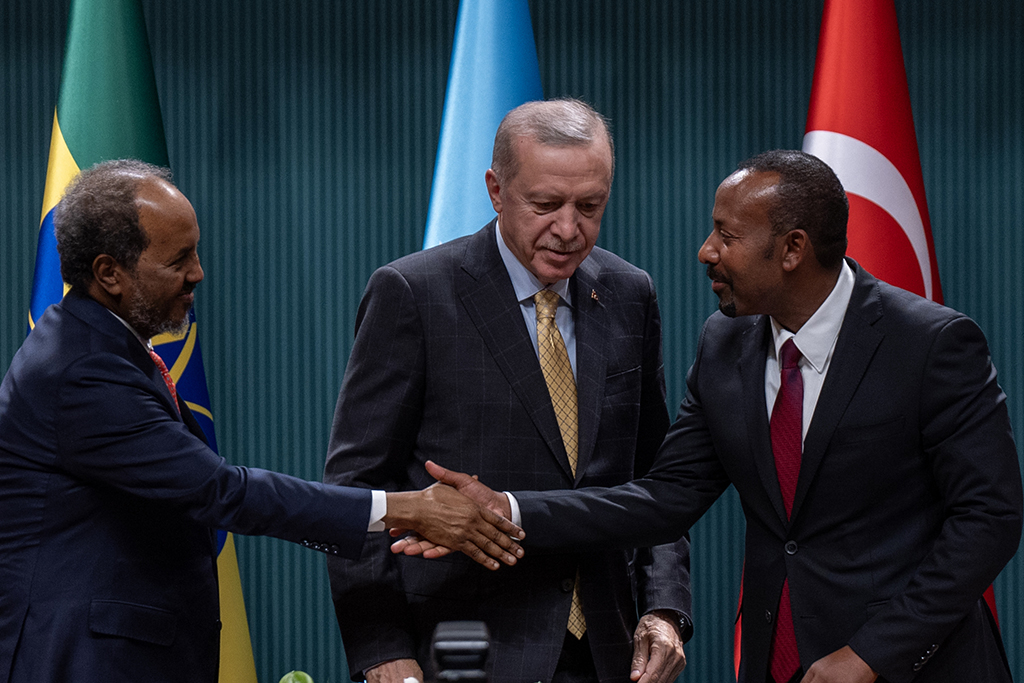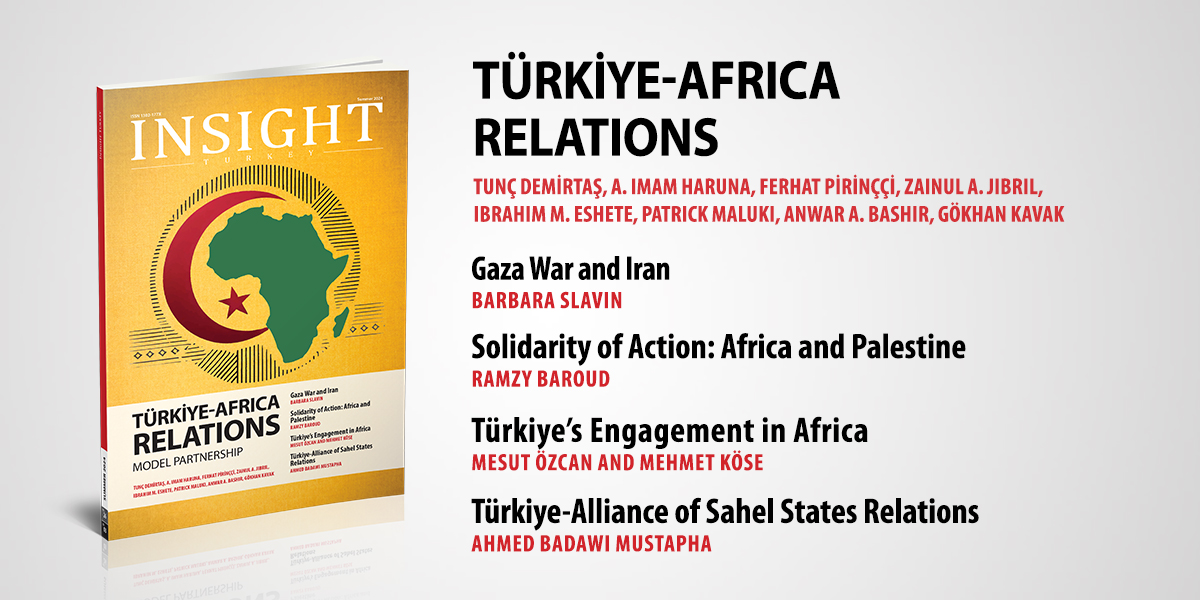- The sustainability of Türkiye-Somalia relations is expected to strengthen cooperation in various fields
- With its health, education and infrastructure projects, Türkiye has contributed to the development of state-society relations in Somalia by increasing the access of the Somali people to basic services
- Türkiye has always supported Somali society and prioritized institutional relationships over individual ties while exclusively cooperating with legitimate governments and supporting democratization
Türkiye, which sent troops to Somalia on Jan. 3, 1993, took a step toward establishing international peace and stability as part of the United Nations' Second Somalia Operation (UNOSOM II). This step opened the door to a new era in which Türkiye intervened in conflict areas in Somalia with diplomatic and humanitarian assistance. The visit of Turkish President Recep Tayyip Erdogan, who was the prime minister at the time, to Somalia in 2011 was a turning point in Türkiye's approach to Somalia.
Technology, military, infrastructure and more: The fields of cooperation
Türkiye's contributions to strengthening state institutions, as well as stability and defense, have grown at an ever-increasing pace. Acting with an understanding of joint growth and development, Türkiye has advanced its relations with Somalia within this framework.
Indeed, contributions to the formation of a strong and inclusive governance system have been made by increasing the capacities of public institutions in Somalia through technical support programs and training. In addition, with its health, education and infrastructure projects, Türkiye has contributed to the development of state-society relations in Somalia by increasing the access of the Somali people to basic services and fostering trust. On the other hand, Türkiye has always supported Somali society and prioritized institutional relationships over individual ties while exclusively cooperating with legitimate governments and supporting democratization.
However, one of the most obvious areas of Türkiye's contributions to Somalia is the defense sector. Indeed, in 2017, a comprehensive program was launched to enhance the Somali National Army's operational capacity by establishing the TURKSOM Military Training Base in Somalia. In order to shape the Somali security forces in accordance with local conditions and to protect the territorial integrity of Somalia, a wide range of assistance is provided, from military training to operative support in the conflict area. Türkiye also provides training for the Somali Police Force, including the Haramcad public order units.
Türkiye also makes significant contributions to Somalia's infrastructure and economic development. In this context, the modernization of Mogadishu Airport and Mogadishu Port, the rehabilitation of main roads and the improvement of public services are concrete indicators of Türkiye's interest in the development of Somalia. Having also started the construction of a new airport in Mogadishu, Türkiye continues to take steps to support sustainable development in Somalia.
Additionally, humanitarian aid and health support in newly established districts in regions liberated from the Al-Shabaab terrorist group in Somalia continue through organizations like the Turkish Red Crescent, Turkish Cooperation and Coordination Agency (TIKA), and civil society groups. Thus, the contributions of soft power play a crucial role in preventing these regions from falling under terrorist group Al-Shabaab’s control. Therefore, it is understood that humanitarian aid aimed at improving the quality of people's daily living conditions also contributes to sustainable stability in Somalia.
Development of bilateral relations
Relations between Türkiye and Somalia have developed and continue to develop in many areas over time. These ties have turned into a strategic partnership encompassing both diplomatic and emotional ties. Türkiye’s large-scale humanitarian aid operation in Mogadishu in 2011 helped gain the trust of the Somali people. Following this start, Türkiye continued its humanitarian aid and has continued to support Somalia, which it sees as a brotherly partner, in almost every field. Economically, Turkish companies have contributed to the revival of Somalia’s local economy by undertaking infrastructure projects. Türkiye’s establishment of its largest embassy in Mogadishu and Turkish Airlines’ regular flights to the city have contributed to boosting trade and facilitating travel between the two countries.
At this point, Türkiye’s educational partnerships have become more prominent. Thousands of Somali students have studied in Türkiye through scholarships provided by the Presidency for Turks Abroad and Related Communities (YTB). Upon their return, these students have actively contributed to Somalia’s development, including roles in state administration. In addition, the hospitals and health services Türkiye has established in Somalia have significantly improved the quality of life of the Somali people.
Later, Türkiye also shared its expertise in enhancing security in Somalia and provided support to counter-terrorism efforts within the framework of international law. These efforts elevated Turkish-Somali relations to the level of brotherhood and strategic partnership.
A glimpse into the future of Türkiye-Somalia relations
Somalia’s strategic geopolitical position offers substantial opportunities for future cooperation with Türkiye. In this context, projects and investments such as securing territorial waters, constructing new airports and ports, and the space station project will further deepen the partnership between the two countries. On the other hand, all these projects will increase Türkiye’s investment volume in Somalia, allowing Somalia to stand out more prominently in the region in terms of investments. Additionally, the construction of the new Mogadishu city, recently announced by Somali President Hassan Sheikh Mohamud, and the potential new opportunities for the private sector arising during this process will also contribute to deepening relations. Indeed, the establishment of the entire infrastructure for the planned new city will bring significant advantages.
Furthermore, with the potential discovery of reserves by the Oruc Reis, which is conducting seismic research in Somalia, and the initiation of activities in the fishing sector, Turkish companies will be able to take on an active role in Somalia. These areas also hold great potential in terms of both energy independence and maritime security. Similarly, the anticipated deepening of relations in the fields of defense and security will also allow for the consolidation of relations in counter-terrorism efforts. In summary, the sustainability of Türkiye-Somalia relations is expected to strengthen cooperation in various fields for the future.

